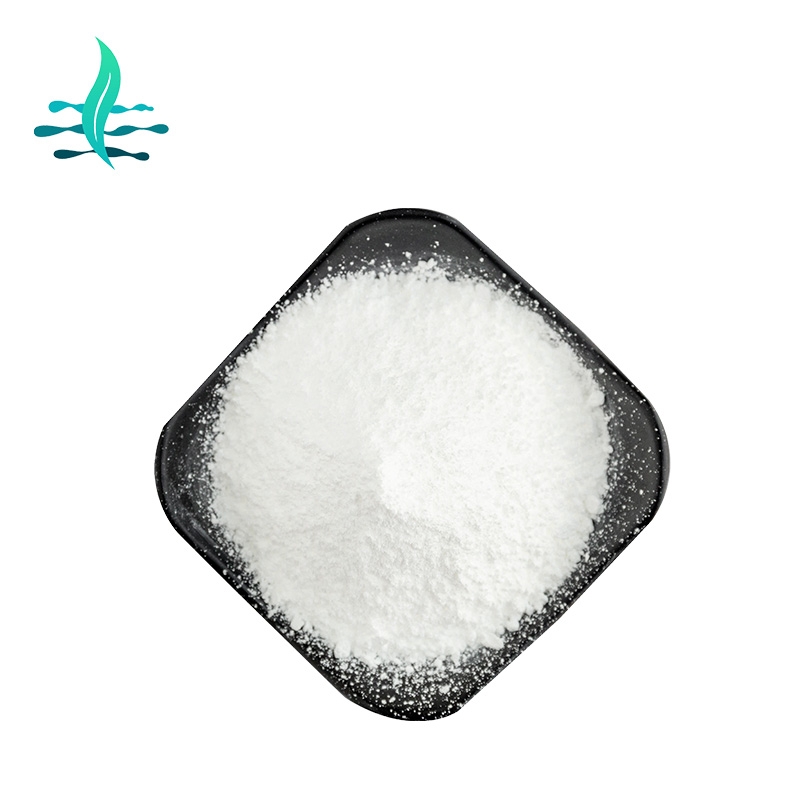Review on the technology of biodiesel synthesis by enzyme
-
Last Update: 2010-02-22
-
Source: Internet
-
Author: User
Search more information of high quality chemicals, good prices and reliable suppliers, visit
www.echemi.com
Biodiesel is a kind of renewable and clean energy which is made of oil-bearing plant, animal oil and waste edible oil At present, chemical catalytic transesterification is the main process of biodiesel production However, there are some inevitable shortcomings in the preparation of biodiesel by chemical method, such as excessive methanol used in the reaction process, cumbersome follow-up processing, water and free fatty acids in the oil raw materials will seriously affect the yield and quality of biodiesel, and the discharge of waste alkali (acid) solution is easy to cause secondary pollution to the environment Because of the advantages of mild reaction conditions, small amount of alcohol and no pollutant emission, biodiesel synthesis by enzyme has been paid more and more attention The free fatty acid and water mixed in the reactant have no effect on the enzyme catalyst After the reaction liquid is standing, the fatty acid methyl ester can be separated However, there are some problems to be solved in the preparation of biodiesel by enzyme, such as the deactivation of enzyme caused by the reactant methanol, the influence of by-product glycerin on the activity and stability of enzyme reaction, and the short life of enzyme These problems become the main bottleneck of biodiesel production by enzyme method At present, the technology of biodiesel synthesis by enzyme is being studied and improved Osaka Municipal Institute of industry, Japan, has successfully developed and used immobilized lipase to continuously produce biodiesel Methanol is added in stages for reaction The reaction temperature is 30 ℃, the conversion rate of vegetable oil is 95%, and lipase is still active after continuous use for 100 days The product can be directly used as biodiesel Guanxi chemical engineering company of Japan has developed a simple and low-cost process, which uses the whole cell biocatalyst to reverse esterification of waste vegetable oil In the new technology, Rhizopas Oryzae cells were immobilized on biomass supported porous particles (BSP) made from polyurethane foam to produce lipase 0.1% glutaraldehyde solution was added to stabilize rhizopas oryzae cells and improve lipase activity The waste vegetable oil was added to the aqueous culture medium with BSP fixed cells, and methanol was added step by step The reaction was carried out at about 30 ℃, and the yield of methyl ester could reach 90% After six batch cycles, lipase activity was maintained The new process will not produce a large amount of waste water like the alkaline catalytic route, nor need complex purification process If there is no free acid or catalyst residue, fatty acid methyl ester or by-product glycerin can be generated Guanxi chemical engineering company is further developing this technology so that it can be put into commercial application soon A new process, which can transform animal and vegetable oils into biodiesel under normal temperature and pressure, has been successfully applied in Tsinghua University The new process of biodiesel production by enzyme method developed by the laboratory of renewable resources and bioenergy of the university provides an ideal way for the industrial production of biodiesel The yield of biodiesel in the pilot plant with the new process is more than 90% The biodiesel samples produced by the pilot plant have been tested by the Research Institute of petroleum and chemical engineering of Sinopec Group, and the technical indexes of the products meet the biodiesel standards of the United States and Germany, and the No.0 superior diesel standard of China The engine bench test shows that the concentration of carbon monoxide, hydrocarbon, smoke and other major toxic components in the exhaust gas of the engine is significantly reduced, and the dynamic characteristics of the engine are basically the same compared with the commercial petrochemical diesel Due to the advantages of mild reaction conditions, small amount of alcohol and no pollutant emission, more and more attention has been paid to the biological enzyme method However, there are some problems such as methanol and by-product glycerin affecting the activity and stability of the enzyme, short life of the enzyme, high cost, etc., which have become the bottleneck of the industrial production of diesel oil by the biological enzyme method In this regard, the laboratory of renewable resources and bioenergy of the Department of chemical engineering of Tsinghua University put forward a new production process, which can effectively eliminate the negative effects of methanol and by-product glycerin on the activity and stability of enzyme reaction, and greatly extend the life of enzyme The process has been successfully applied in the pilot plant of 200 kg / day biodiesel of Hunan Haina Baichuan Bioengineering Co., Ltd and biodiesel is produced from rapeseed oil The reactor of the pilot plant operated continuously for more than three months, and the enzyme activity did not show a significant decline trend In addition, glycerol, a byproduct of biodiesel production, can be further converted into 1,3-propanediol, a high value-added product, by using the existing technology The combination of the two technologies can significantly improve the economic benefits of the biodiesel production process Bio Valley recommended reading: the development of bio diesel in India and other countries the status quo and trend of the development of bio diesel in China the development of new technologies of bio diesel in Geneva the invention of new methods for producing bio diesel from grape seeds the development of bio diesel in China 's bio diesel market in 2008-2012 The new technology of biodiesel production from renewable oil materials by enzyme conversion completed by Tsinghua University passed the appraisal of the Ministry of education Through testing, the key technical indexes of biodiesel samples prepared by this innovative process are in line with the American and German biodiesel standards, as well as China's No 0 premium diesel standard This kind of environmental friendly bio enzyme biodiesel technology is expected to be industrialized In view of the bottleneck of biological enzyme process, the research group of Tsinghua University put forward the production process to fundamentally remove the negative effects of reactant methanol and by-product glycerin on the activity and stability of enzyme reaction in the traditional process, and significantly extend the life of enzyme Using this new process to produce biodiesel, the operation is simple, and the animal and vegetable oil can be effectively converted into biodiesel under normal temperature and pressure, with a yield of more than 90% In addition, lipase can be directly used in the next batch reaction without any treatment in the new process, and it has a good operational stability The new process has been running on the reactor for more than 10 months, and nearly 200 reaction batches show no decline in enzyme activity The new technology can significantly prolong the life of enzyme and greatly reduce the cost of enzyme It is expected to use the environmentally friendly enzyme method to realize the industrial production of biodiesel Biodiesel can also be produced by hydrocracking Several new processes have been developed Glycerol is not produced by hydrocracking The vegetable oil can be converted into high cetane number (~ 100) and low sulfur diesel oil The wide range of raw materials can be processed, including materials with high free acid content Several reactions take place in hydrocracking process, including hydrocracking, hydrotreating and hydrogenation The yield is 75% ~ 80%, cetane number is high (~ 100), and sulfur content is less than 10 ppm After 28 days, the biodegradation rate was 95%, while that of petroleum based diesel was 40% Compared with other biodiesel, the main advantage is that NOx emission can be reduced The conventional hydrotreating catalyst and hydrogen are used in the process, which can be selected by oil refineries Because hydrogen is available, it can be combined with oil refineries conveniently Neste Petroleum Company of Finland invested 100 million euros to build a hydrogenation biodiesel unit in palv refinery of Finland The unit with a capacity of 170000 tons / year was put into operation in the summer of 2007 This will be the first unit to adopt the new nexbtl (new generation biomass to oil) process of Nast oil company The nexbtl method produces diesel fuel from renewable raw materials, and can flexibly use various vegetable oils and animal fats In this process, fatty acids are hydrogenated into alkanes and isoalkanes In July 2005, Nast oil company signed a contract with total company to evaluate the feasibility of building a large-scale biodiesel production unit in a refinery of total company Nexbtl process will be applied to the unit and put into operation in 2008 Recommended reading of Biovalley: development of biodiesel in India and other countries current situation and trend of biodiesel development in China Millennium Tong -- the dream of 50 billion biodiesel
This article is an English version of an article which is originally in the Chinese language on echemi.com and is provided for information purposes only.
This website makes no representation or warranty of any kind, either expressed or implied, as to the accuracy, completeness ownership or reliability of
the article or any translations thereof. If you have any concerns or complaints relating to the article, please send an email, providing a detailed
description of the concern or complaint, to
service@echemi.com. A staff member will contact you within 5 working days. Once verified, infringing content
will be removed immediately.







